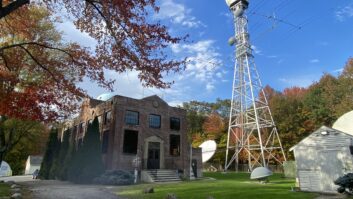A consortium of Native American tribes is the tentative winner of a construction permit for a new noncommercial FM station in Warner Springs, Calif. That community is in San Diego County, about a 40-mile drive southeast of Temecula.
The Federal Communications Commission announced the choice from among mutually exclusive applications made during its recent NCE window. It based the choice on a “threshold Tribal Priority analysis,” including a requested waiver from the Southern California Tribal Chairmen’s Association.
SCTCA is a non-profit established in 1972 for a consortium of 25 federally recognized Native American tribes in southern California. Its purpose is to “serve the health, welfare, safety, education, cultural, economic and employment needs of its tribal members and descendants in the San Diego County urban areas.”
The other, mutually exclusive hopeful for a station is the Center for Economic Justice, which wanted to build in Ramona, Calif.
SCTCA argued that its application qualifies for a tribal priority, and asked the commission for a waiver of an FCC requirement that at least 50% of the proposed 60 dBµ contour be comprised of the applicant’s tribal lands, or that the proposed 60 dBµ contour cover 50% or more of the applicant’s tribal lands and that it meet population coverage requirements.
[See Our Business and Law Page]
According to SCTCA, there are more than 30 tribal reservations in San Diego and Riverside Counties, “more than in any state in the United States,” yet even assuming the most restrictive signal, it said, none of the California reservations could meet the population standards owing to “small size and native population dilution within surrounding areas.”
The association laid out several reasons in support of its argument, which the FCC found persuasive. The commission wrote: “We believe that, given the circumstances, it would be extremely difficult for a tribe or tribal consortium to claim a tribal priority in this area without a waiver of the tribal coverage criterion.”
It said the proposed station would serve six tribes’ reservations in its 60 dBµ contour, and according to the maps submitted, another six reservations lie just outside the proposed contour. “The station proposed by the SCTCA consortium would thus serve from a half-dozen to a dozen tribal lands directly, not counting any potential future FM translators rebroadcasting the proposed station’s signal.”
There is only one tribal-owned station in Southern California, the service contour of which does not overlap the proposed Warner Springs station, it said. “The proposed station represents the only current opportunity for tribal-owned NCE service to an area of the country that is home to many different Native Nations.”
The FCC also will allow the proposed community of license to be adjacent to the Los Coyotes Reservation, not on it.
Here’s a link to the FCC order with details on its rationale. Petitions to deny must be filed within 30 days.
Paul McLane is editor in chief of Radio World, which he joined in 1996, directing the editorial content of 32 annual print issues, almost 100 ebooks, daily newsletters, and webcasts and special projects. He has interviewed directors of engineering, FCC chairs, national radio personalities and corporate executives about digital radio, connected cars, industry standards and other topics. Prior to RW he was an award-winning broadcast journalist and technology sales/marketing executive.







